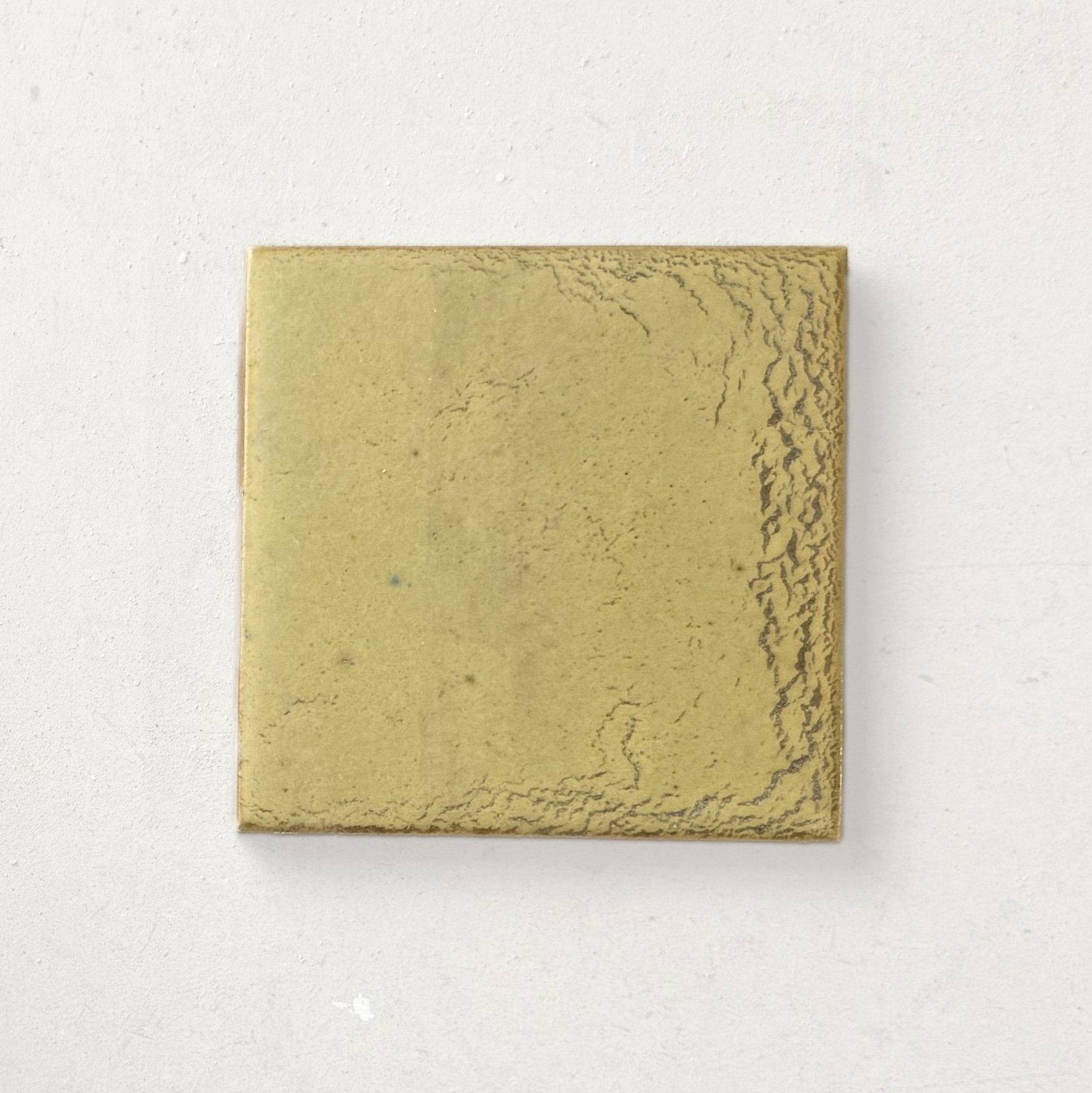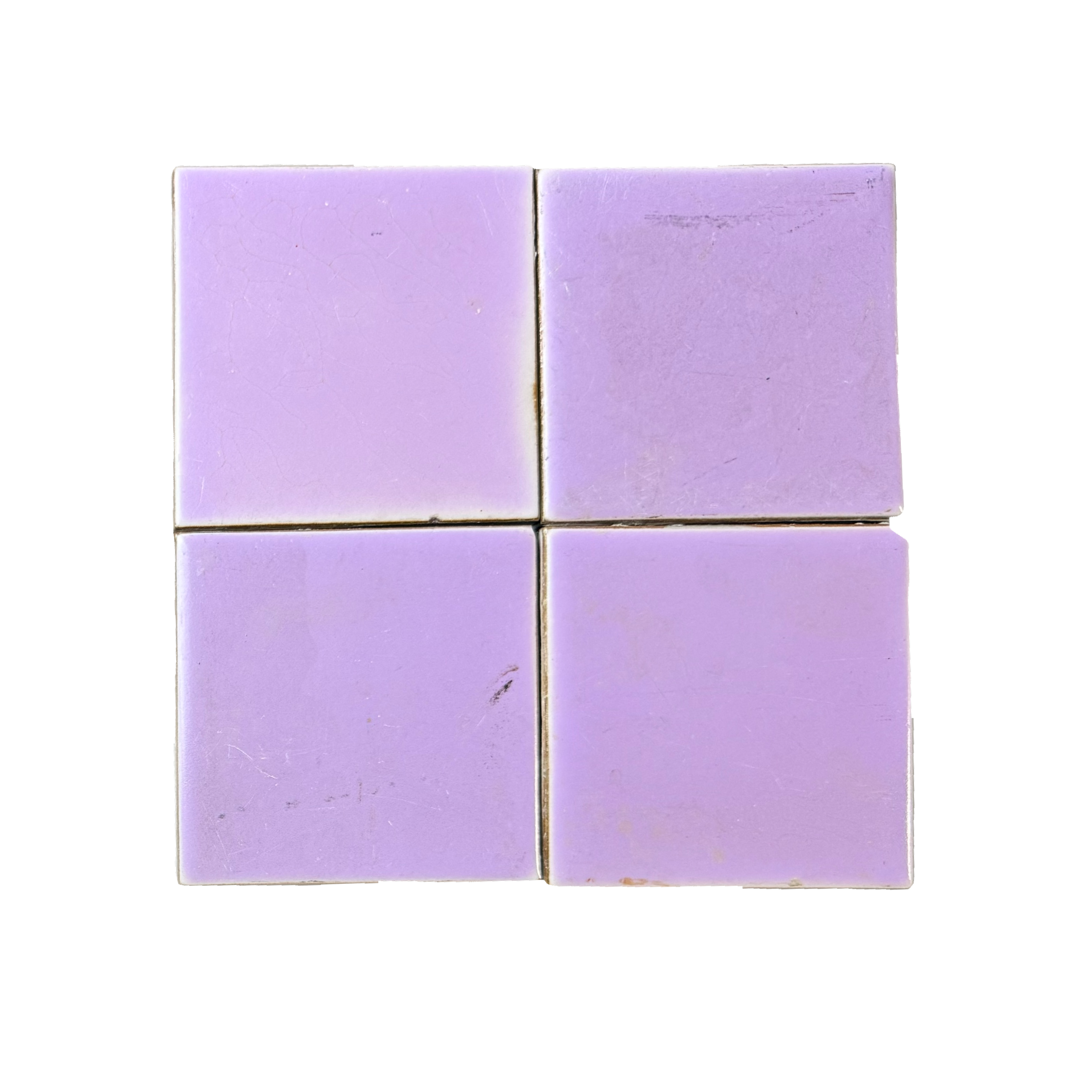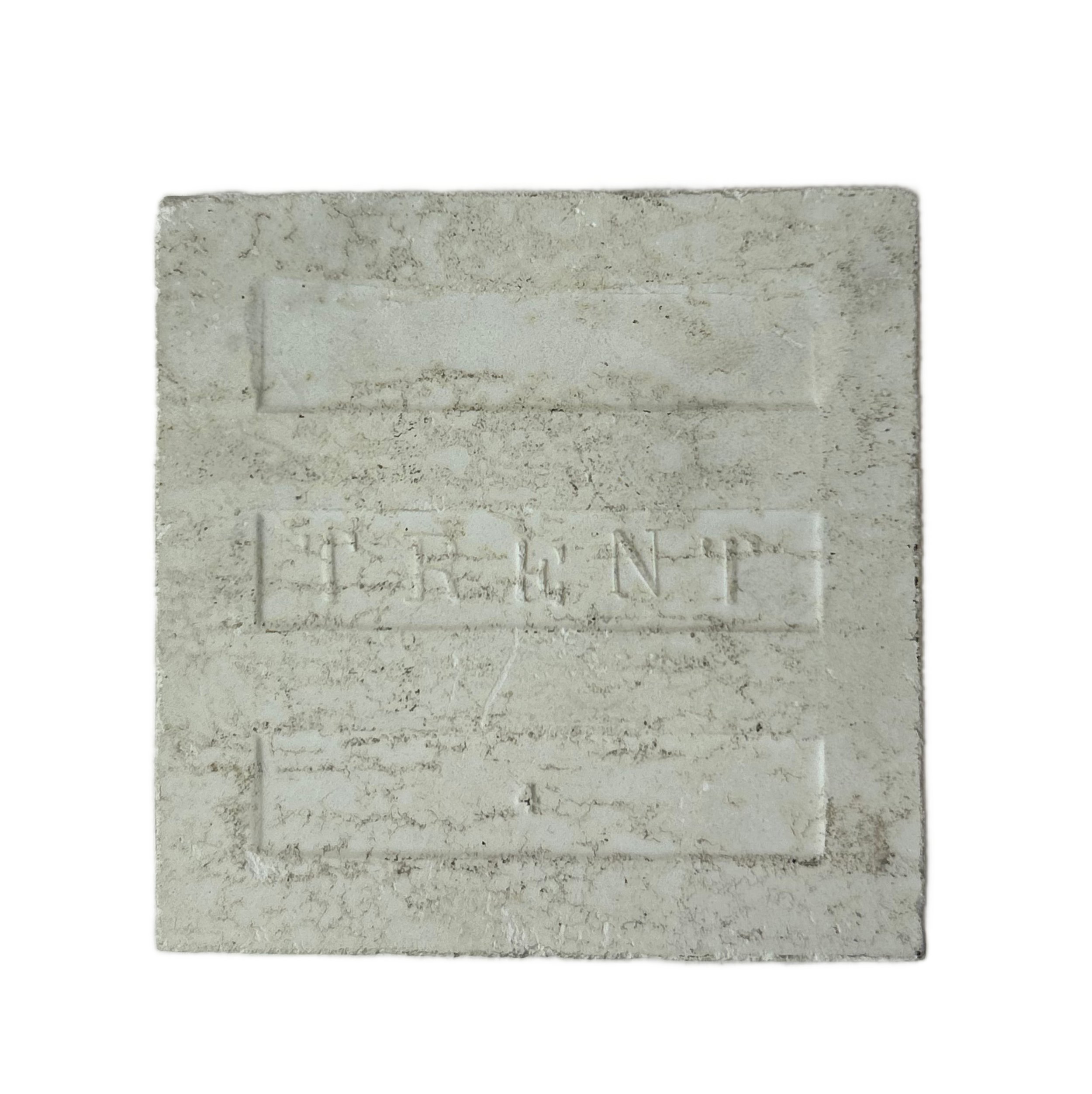Field Victorian Tile, White - Trent Tile Works
From the lifelong collection of a tile enthusiast, these white Victorian field tiles were made by Trent Tile Works of Trenton, New Jersey circa 1900.
They likely spent their first 120 years as a fireplace tile, but can be used in a kitchen, bathroom, entryway, or on a fireplace.
Please reach out about incorporating these into a custom design, if desired.
Priced per tile.
From the lifelong collection of a tile enthusiast, these white Victorian field tiles were made by Trent Tile Works of Trenton, New Jersey circa 1900.
They likely spent their first 120 years as a fireplace tile, but can be used in a kitchen, bathroom, entryway, or on a fireplace.
Please reach out about incorporating these into a custom design, if desired.
Priced per tile.
From the lifelong collection of a tile enthusiast, these white Victorian field tiles were made by Trent Tile Works of Trenton, New Jersey circa 1900.
They likely spent their first 120 years as a fireplace tile, but can be used in a kitchen, bathroom, entryway, or on a fireplace.
Please reach out about incorporating these into a custom design, if desired.
Priced per tile.
Additional info
Shipping
These tiles will be shipped via UPS Ground for $17 with standard insurance and tracking. All items sold as is with no warranties expressed or implied.
-
Each tile measures 1 ½" x 6".
Tile thickness: 7/16”
-
Ready for install: fully cleaned and free of loose mortar, grout, and soot
Good condition
Because they are 110+ years old, there will be minor crazing, pits, and flea bites, but they are in good condition for their age.
All tiles are fully checked for cracks or chips, any tiles that do not meet our installation standards are not placed in inventory.
-
These tiles were acquired from the estate of a lifelong tile collector.
The Trent Tile Company was first organized as the Harris Manufacturing Company, c. 1882, but soon had its name changed to Trent. By 1892 Trent operated 20 kilns--including six round biscuit kilns and upwards of a dozen enameling or English muffle kilns. By 1910, it employed 300 workers.
















